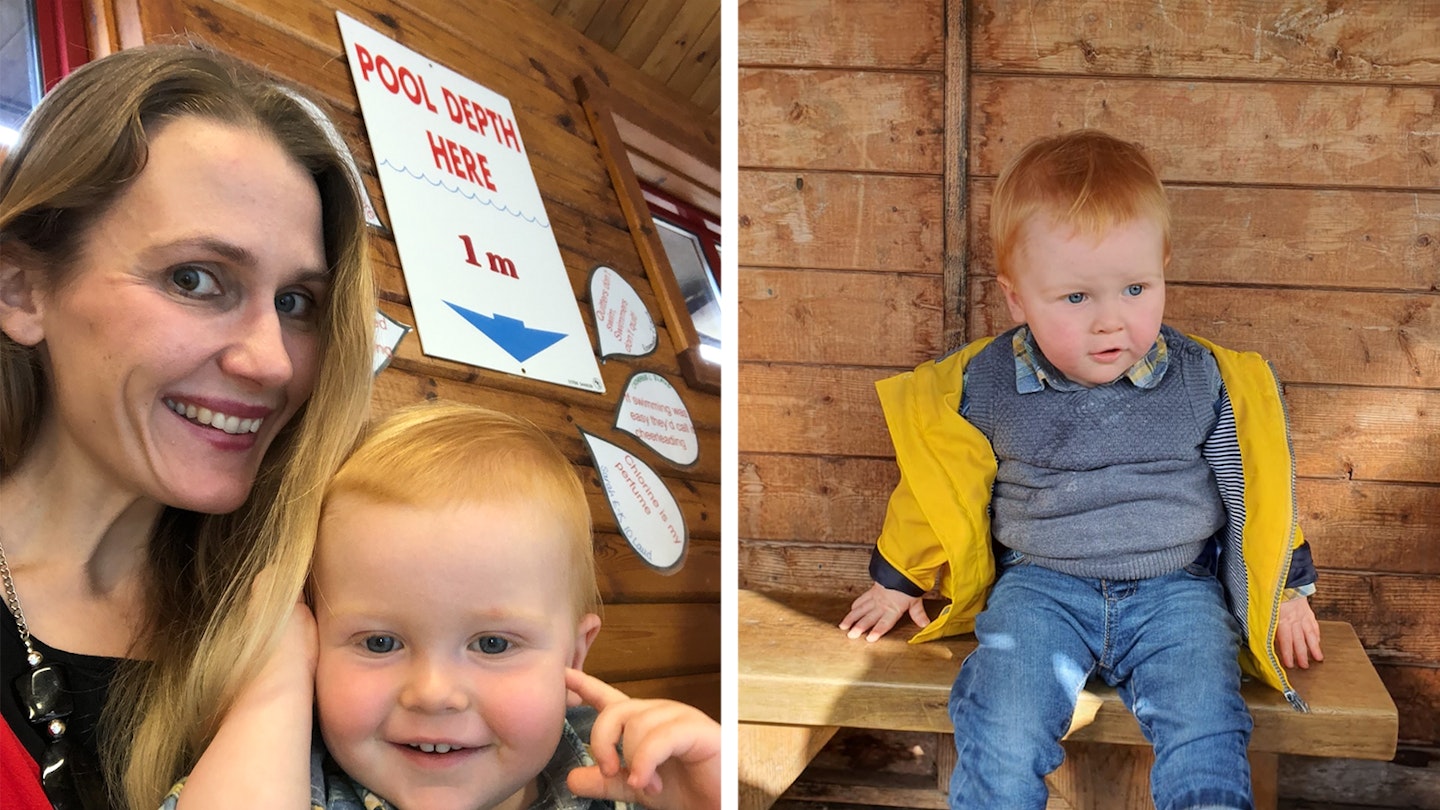In a moment of idleness, I was scrolling through Facebook when I came across a video of Ed Sheeran and Prince Harry who recently teamed up to raise awareness for World Mental Health Day.
The comedy clip begins with Ed Sheeran having his ginger beard trimmed before meeting up with Prince Harry to discuss something important that the royal says is ‘not talked about enough.’
He adds: ‘I think people all over the world are really suffering.’
Ed agrees and admits he’s been trying to write a song about the subject, to try and get the message out to people.
Prince Harry responds: ‘Someone with your skill-set, to be able to write lyrics of a song to raise awareness would be amazing.’
But while the royal is referring to World Mental Health Day, the joke is that Ed has clearly got the wrong end of the stick.
Ed says that nobody understands what it’s like for ‘people like us,’ referring to the fact that they both have red hair.
‘The jokes, the snide comments,’ he continues. ‘It’s time that we stood up and said “we’re not going to take this anymore. We are ginger and we are gonna fight.”’
A confused Prince Harry then says: ‘Slightly awkward.’
He tells Ed there may have been a miscommunication and their meeting is in fact about World Mental Health Day.
Ed gives a sheepish look to the camera before saying: ‘No no, I definitely knew that,’ while at the same time deleting the words ‘Gingers United’ from a PowerPoint presentation prepared on the laptop in front of him.
A caption alongside the video highlights the more serious message and reads: It’s World Mental Health Day! Both Prince Harry and Ed Sheeran want to ensure that not just today but every day, you look after yourself, your friends and those around you.
On the surface, the video, which received hundreds of thousands of views, is harmless fun for a good cause.
But it got me asking the question – Why is it that red-headed people are always expected to make fun of themselves?
This idea that those with ginger hair should gamely mock themselves is something I’ve always found peculiar. But now, as a mum to a 17-month-old red-haired boy, perhaps it’s something I’ve become even more alert to.
And I choose the words ‘alert to’ rather than ‘sensitive to,’ as herein lies the problem: those with red hair are expected to go along with jokes about their hair colour or risk being seen as ‘humourless’ and ‘over-sensitive.’

Whether at school or in adult life, how many of us can say we’ve never heard a ginger-haired person being made fun of by their peer group, and not only expected to take it on the chin, but to join in with the mockery of themselves?
It’s baffling when you consider that if such ‘jokes’ were made about weight, skin colour, or sexual orientation, they’d most likely, go down like a lead balloon; those at the receiving end of the jibes would quite rightly feel entitled to address the offence taken.
But a ginger who confesses to their feelings being hurt is more likely to be accused of being prickly and poor sport.
This leads me back to the dilemma of being mum to a red-haired boy. I confess a reluctance to typing ‘ginger’ here, not that I’ve got an issue with the word it’s just it’s so often used in a derisory manner.
The conflict I feel is that I, at times, have made light-hearted jokes about my son’s hair colour to friends and family and later wondered if, especially as I’m not a redhead myself, it’s appropriate to do so.
Will such behaviour teach my son to be resilient or am I doing him a disservice?

I’m sure there are many who’d argue that I’m overthinking it. But my guess is there aren’t too many mums of red-headed children who, if they’re being honest with themselves, don’t fear their child being bullied because of the colour of their hair.
Since my son’s birth, his hair has been remarked upon by strangers, family and friends. Many people have told me that they adore his red hair, and I agree. I also love his beautiful golden eyelashes. Reuben has a cheeky little smile and I feel this, alongside the colour of his hair, gives him so much character.
So, it surprises me when people say things like ‘children’s hair colour can change’ – in a way that suggests this might be something I hope for. I’d feel devastated if overnight my son’s hair turned blonde or brown. I’d feel he’d been robbed of his wonderful individuality. My boy is a gorgeous, vibrant little redhead and I couldn’t imagine him any other way. Also, his hair colour makes his blue eyes all the more striking.
It breaks my heart to think that one day he’ll become aware of the negative stigma attached to having red hair.
Although he’s only 17 months old Reuben shows confidence and is feisty. Having an older brother, he knows how to fight his own corner.
But it’s sad to think that I have to weigh up the strengths of his personality to reassure myself that he’ll be able to handle any negativity that’s likely to be thrown his way.

No matter how self-assured a child may be, it doesn’t make it right that they should have to navigate their way around unpleasant comments based on the colour of their hair.
In a time where, as a society we’ve become so politically correct and terrified of causing offence, it says a lot that it’s still deemed acceptable to take the mickey out of redheads.
Prince Harry has long supported The Diana Award, the only charity set up in memory of his mother, Diana Princess of Wales. The charity runs an anti-bullying programme, encouraging change in attitudes and behaviours among young people.
One of the charity’s anti-bullying ambassadors, Hannah Adams, recently featured in the Jesy Nelson documentary ‘Odd One Out’ about the devastating impact of trolling on the life of the Little Mix star.
Hannah, 17, spoke about her experience of bullying and being called ‘ugly’ and a ‘freak’ for being a redhead.
She claims it left her feeling suicidal, and now she works for The Diana Award to raise awareness among young people.
With Hannah’s story in mind, and Prince Harry’s involvement with the anti-bullying charity it makes his decision to film something making fun of having red hair even more questionable.
It could be argued that it empowers redheads but I wonder if that video clip between Prince Harry and Ed Sheeran gives the wrong message. Doesn’t it reinforce the idea that red-haired people should be willing to make fun of their own hair colour?
There’s a fine line between friendly jibes and malicious put-downs, so at the very least shouldn’t we stop expecting redheads to be complicit in the self-mockery of their own hair colour?
By Laura Brown
Now read:
